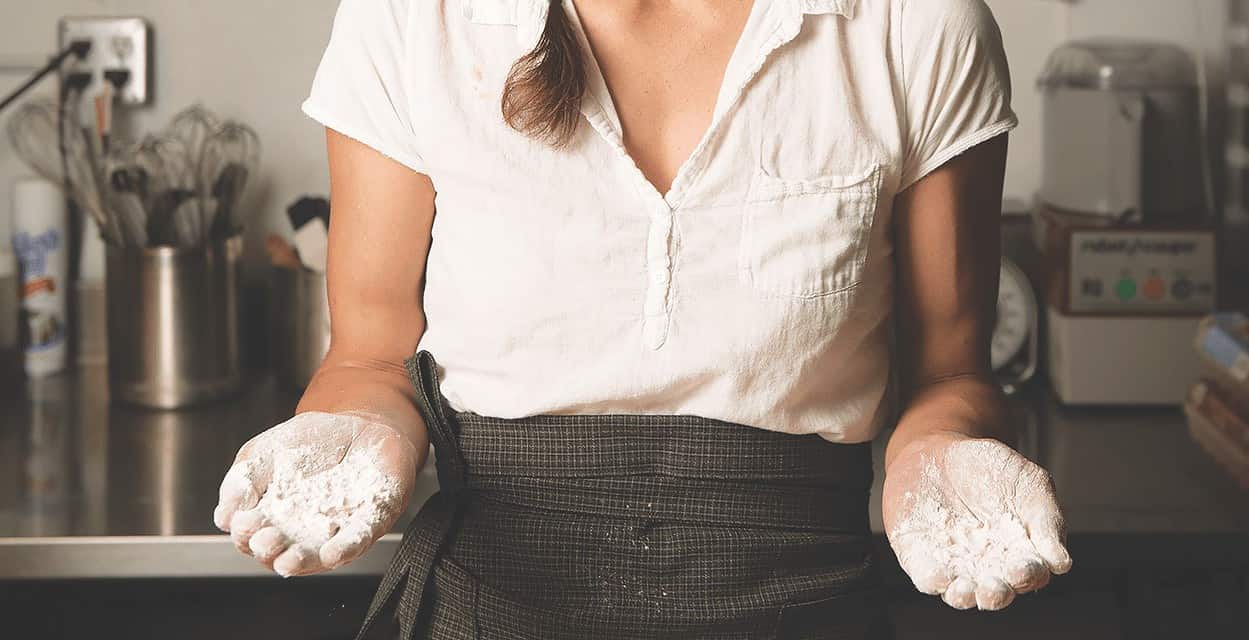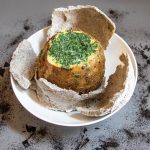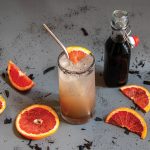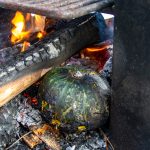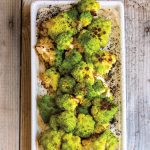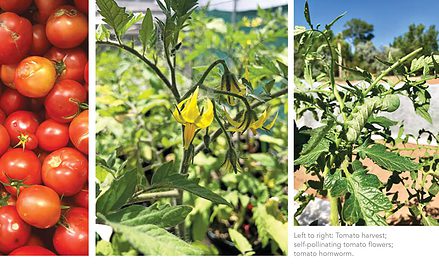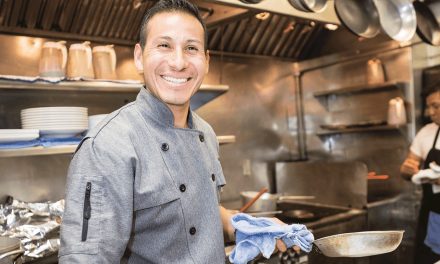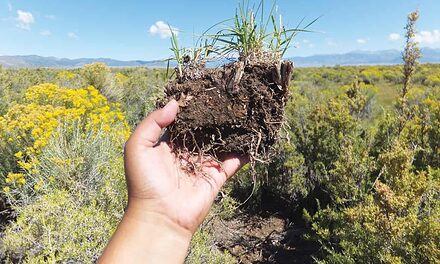With a Slovakian Twist at Dolina
By Jenn Shapland · Photos by Douglas Merriam

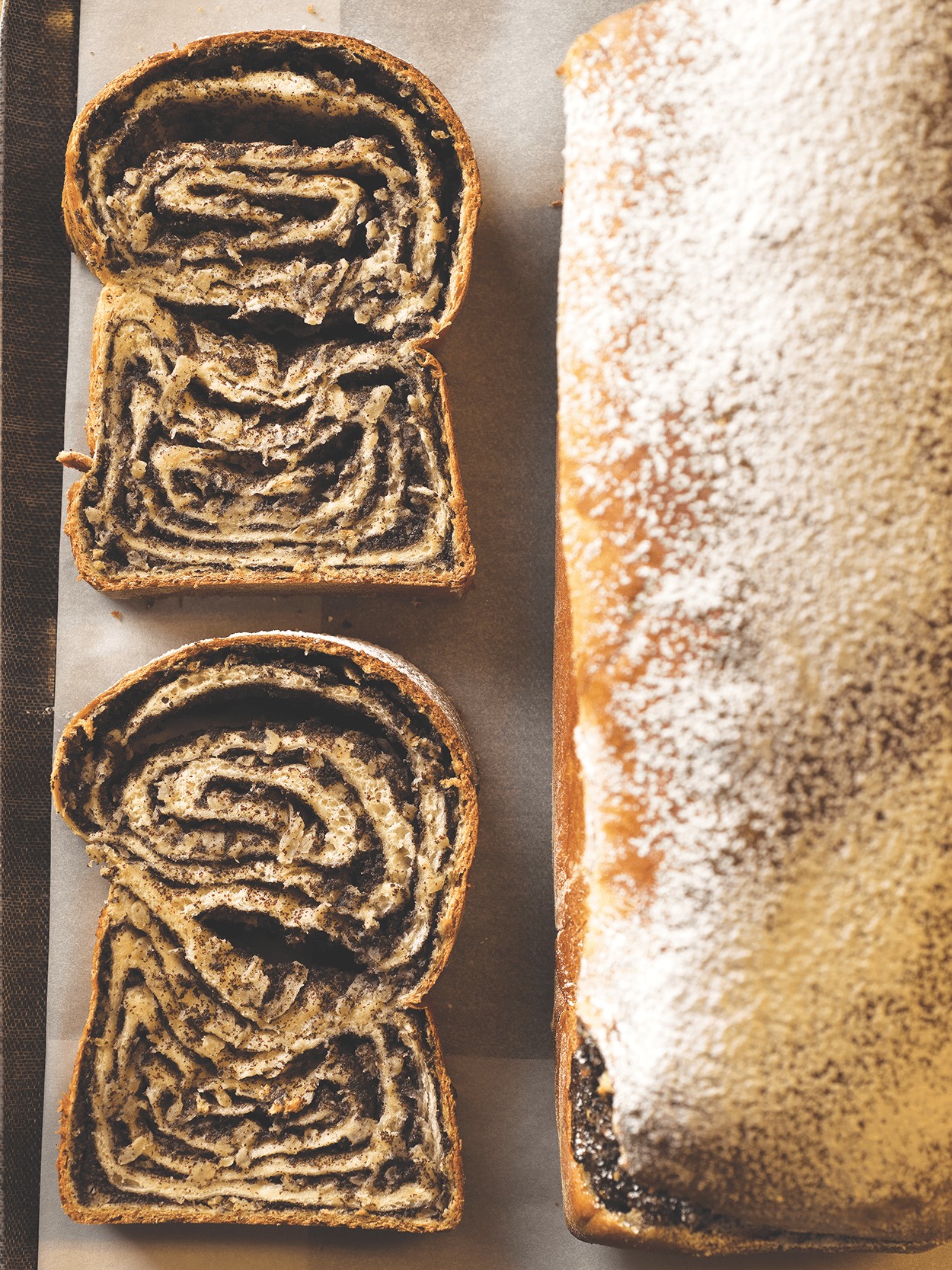
Left: Borscht made with beets, sauerkraut, potatoes, yogurt, and coriander sauce. Right: Makovnik, a rolled yeast bread with ground poppy seed and grated apple.
Annamaria O’Brien is standing by a two-top across the room, deep in conversation with her customers. She seems to know them well. After she sits and talks with me for a while, she moves on to another table of people she recognizes as they dig into soups and Slovakian baked goods. O’Brien hands us each a glass of turmeric lemon juice, spicy with cayenne and ginger. “A cleanser,” she tells us, which she drinks through the winter to boost her immune system. Like everything on offer at Dolina, the juice becomes a nourishing and thoughtful gesture.
The range of dishes on Dolina’s menu is unusual for Santa Fe: borscht and bone broth tucked in beside salmon tartines and ricotta pancakes. As with her childhood in Slovakia, where she grew up in her parents’ restaurant, O’Brien’s life revolves around sharing fresh ingredients and heartfelt meals. Her grandmother’s nearby farm “would supply us with fresh chickens, and fresh vegetables, and she had walnut trees and cherry trees, and she would preserve jam.” After moving to the US to learn English, O’Brien realized how difficult it can be to find fresh food. At Dolina, she keeps her food simple and her ingredients local. For the first months at Dolina, she went to the farmers market herself, sourced meat and bones locally, and worked with Green Tractor Farms and Rebel Farms for their “wonderful sprouts.” Dolina has recently teamed up with Owl Peak Farm in La Madera, who will grow most of Dolina’s produce.

Annamaria O’Brien.
This spring, they’re revising the menu, which throughout the winter emphasized hearty stews and soups such as O’Brien was raised on—think sauerkraut and kielbasa—and leaning into some springier chilled soups, a good potato salad, and stuffed schnitzel. “When I first opened,” O’Brien explains, “I wanted to fill up the menu with Eastern European dishes, but I played it safe with things that people are more used to. As I started to introduce more and more Eastern European food, it started bringing people our way, who would tell me they grew up with this, or their grandma used to make it for them.” My own grandmother was Slovak, so I asked O’Brien about the cookies my mother’s mother baked––kolaches. O’Brien explains how she learned from a customer that Texas has its own version of the kolache, in essence a sausage roll or pig-in-a-blanket—certainly a far cry from Dolina’s traditional Slovak version, a delicate pastry filled with jam and tvarog, a probiotic cream cheese that O’Brien makes in-house. She insists that her kolaches are best right out of the oven, to the point that sometimes she just gives them away. “I tell people, now is the time to eat them, I just want you to experience it.” Refusing to serve day-old baked goods, Dolina takes any excess to a nearby homeless shelter. Baking is at the heart of Dolina’s project, and O’Brien describes it as her strength and what she really wants to pursue. Currently, their breads come from Wild Leaven bakery in Taos, because they don’t have a bread oven “just yet,” but O’Brien has a plan. Bread is her main baker Maureen McCarthy’s “passion and love,” she says, “so I want to nourish it and hopefully incorporate it into the program down the road.”


Left: Kolaches filled with housemade strawberry-rhubarb preserves and a Slovakian sweet cheese called tvarog. Right: Cornmeal waffles and buttermilk fried chicken with green apple and fennel slaw.
Like her food, O’Brien and her café reflect a cultivated simplicity. The space she has created at Dolina is warm and quiet, with grayscale walls and sound-proofing panels on the painted white ceiling. It feels markedly different—more serene, less chaotic—than many spaces in Santa Fe. The walls are decorated like a pantry, with a few dried garlic braids and some dried mushrooms on string. O’Brien made these herself, thinking of her grandmother’s pantry, and was astonished at the intricacy of threading dried mushrooms—a labor of love, she calls it. O’Brien herself is tall and radiates an incredible ease, dressed in layered linen, shades of gray like her walls. “Simple isn’t always good to people,” she concedes, “but it keeps me calm.” Unlike some in the food industry, who prize rapidity and extreme machismo, O’Brien maintains a balanced lifestyle, riding her bike from home to start baking around 5am and then biking back to take her kids to school. Though it can certainly be overwhelming at times, O’Brien has found immense support in the women of the Santa Fe food industry, who lift one another up and send friends to each other’s restaurants. She has recruited locals, like designer Emily Henry for Dolina’s interior, and help from back home, including an indigo textile artist in Slovakia to make fabric for pillows. For a few months this year, O’Brien’s mother traveled from Slovakia to bake alongside her. With a committed community behind her, O’Brien is able to keep her attention on details. The pillows, she notes, are printed with flowers from the lipa tree, from which she grew up making tea. “It really brings me back home,” she muses, as we savor the poppy seed cake and warm apple strudel she’s just whisked out to us. In every aspect of Dolina, O’Brien’s philosophy is clear: making food is a way of taking care of people.
402 North Guadalupe, Santa Fe, 505-982-9394
www.dolinasantafe.com
Edible celebrates New Mexico's food culture, season by season. We believe that knowing where our food comes from is a powerful thing. With our high-quality, aesthetically pleasing and informative publication, we inspire readers to support and celebrate the growers, producers, chefs, beverage and food artisans, and other food professionals in our community.

